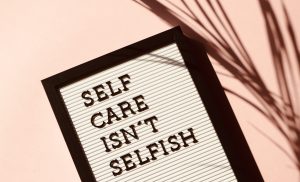From Talk to Trust: How Effective Communication Enhances Your Relationships
Effective communication is the cornerstone of healthy and fulfilling relationships. Whether it’s with your partner, family, friends, or colleagues, the way you communicate can significantly impact the quality of your connections. In this article, we will delve into the intricacies of communication, exploring how it evolves from mere conversation to building trust. We’ll also provide valuable insights and practical tips to enhance your communication skills, ultimately nurturing stronger, more meaningful relationships.
The Power of Effective Communication
Communication is more than just words; it’s a complex interplay of verbal and non-verbal cues, active listening, empathy, and emotional intelligence. Effective communication serves as the bridge that connects individuals, fostering understanding, empathy, and trust. Here’s how it works:
- Active Listening: Truly listening to someone means giving them your full attention without interrupting or formulating a response in your mind. When you actively listen, you show respect and genuine interest in what the other person is saying. This fosters a sense of validation and trust.
- Empathy: Empathy involves understanding and sharing the feelings of another person. By empathizing, you can connect with others on a deeper level, making them feel heard and understood, which strengthens the bond between you.
- Non-Verbal Communication: A significant portion of communication is non-verbal. Facial expressions, body language, and tone of voice convey emotions and intentions. Being aware of and using these cues effectively can prevent misunderstandings and promote trust.
- Clarity and Openness: Effective communication is clear and transparent. It involves expressing your thoughts and feelings honestly and openly, which encourages reciprocity from others.
- Conflict Resolution: Conflict is a natural part of any relationship. Effective communication skills enable you to address conflicts in a healthy, productive manner, leading to resolution and growth instead of damage.
The Evolution of Communication
Communication starts as a means of exchanging information, but it evolves as relationships deepen. Here’s how communication progresses:
1. Small Talk: The Icebreaker of Communication
- Small talk serves as the initial gateway to communication. During this phase, people engage in light-hearted conversations about everyday topics, such as the weather, weekend plans, or recent movies.
- Example: Imagine you’re at a networking event, and you strike up a conversation with a stranger by commenting on the unseasonably warm weather. This casual chit-chat helps break the initial awkwardness and paves the way for more meaningful conversations.
2. Sharing Personal Experiences: Building Trust Through Vulnerability
- As trust begins to develop, individuals gradually open up and share more personal experiences, thoughts, and emotions. This vulnerability deepens the connection and reinforces the bond.
- Example: Suppose you’ve been dating someone for a few months. You start sharing childhood memories, personal dreams, and your aspirations for the future. By revealing your inner world, you allow your partner to get to know you on a more profound level, strengthening the emotional connection.
3. Active Listening and Validation: Nurturing Through Empathy
- Effective communication goes beyond just hearing words; it involves actively listening to others’ stories and experiences while validating their emotions. This not only acknowledges their feelings but also strengthens the relationship.
- Example: Your best friend confides in you about a recent breakup. Instead of offering immediate advice, you actively listen, nodding empathetically and saying, “I can see how challenging this is for you. It must be incredibly painful.” Your genuine empathy reassures your friend that their feelings are valid, fostering trust.
4. Conflict Resolution: The Crucial Role of Communication in Mature Relationships
-
- In mature relationships, effective communication plays a pivotal role in resolving conflicts and misunderstandings. It provides a platform for both parties to express their concerns, seek compromise, and maintain trust.
- Example: Imagine you and your long-term partner have a disagreement about how to manage household finances. Instead of arguing, you sit down and engage in a calm, open dialogue. You express your concerns about saving for the future, and your partner shares their perspective on current expenses. Through this constructive conversation, you both work towards a compromise that aligns with your shared goals, ultimately reinforcing trust in your relationship.
Practical Tips for Enhancing Communication
Now that we understand the significance of effective communication in relationships, let’s explore some practical tips to help you improve your communication skills:
- Practice Mindfulness: Being present in the moment can significantly improve your communication. Mindfulness techniques help you stay focused on the conversation, reducing distractions and improving your ability to listen and respond.
- Develop Emotional Intelligence: Understanding and managing your emotions is essential for effective communication. Emotional intelligence allows you to empathize with others and express your feelings constructively.
- Ask Open-Ended Questions: Encourage meaningful conversations by asking open-ended questions that invite thoughtful responses. These questions foster deeper connections and promote understanding.
- Avoid Assumptions: Assumptions can lead to misunderstandings. If something is unclear, ask for clarification rather than making assumptions. This shows your commitment to understanding the other person.
- Use “I” Statements: When discussing your feelings or concerns, use “I” statements to express yourself without blaming or accusing. For example, say, “I felt hurt when…” instead of “You hurt me when…”.
- Practice Empathetic Listening: Empathetic listening involves not only hearing the words but also understanding the emotions behind them. Reflect on what the other person is feeling and respond with empathy.
Effective communication is the foundation upon which trust and healthy relationships are built. It evolves from casual conversations to deep, meaningful exchanges that foster understanding and connection. By actively listening, practicing empathy, and honing your communication skills, you can enhance your relationships, create trust, and lead a more fulfilling life. Remember, communication is an ongoing process, so continue to nurture and develop these skills in all your interactions.

















